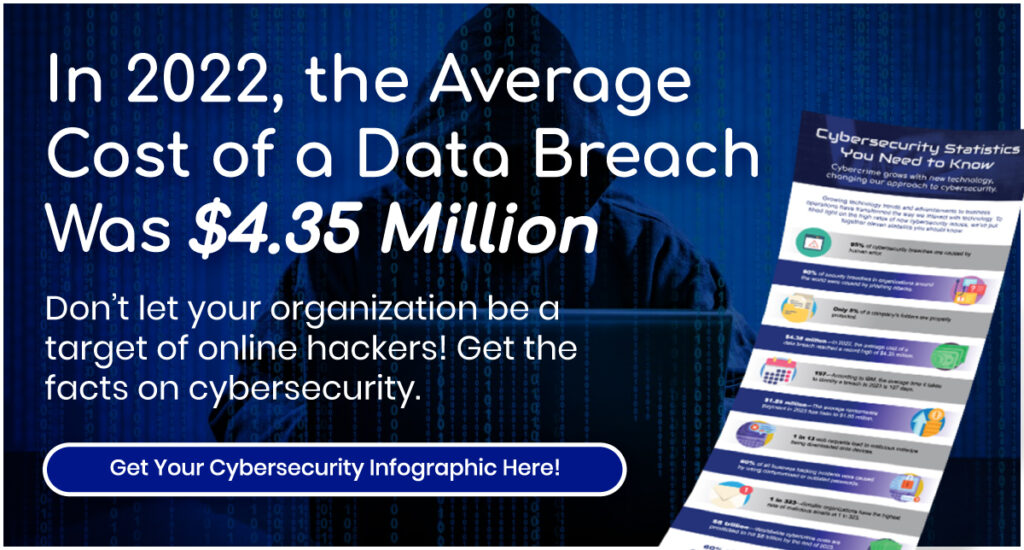In a constantly evolving digital landscape, small and medium businesses (SMBs) face an increasing threat from cyberattacks. In fact, BlackFog reports 61% of all SMBs were victims of a cyberattack in 2022. This is simply a problem which cannot be ignored. Proactive action is needed to prevent cybercrime. Therefore, small and medium businesses need to prioritize cybersecurity and implement robust protection measures to safeguard their sensitive data, customer information, and overall business operations. However, many SMBs struggle to navigate the complex world of cybersecurity solutions in search of the best fit for their unique needs.
In this guide, we’ll explore the various cybersecurity solution categories available to SMBs. By the end, we hope you’ll have a clear understanding of how to protect your SMB effectively.
Need a Better Security Model? Learn How to Build a Zero Trust Environment
Introduction to Cybersecurity Solutions for SMBs
As the risk of a cybersecurity incident continues to rise, the importance of cybersecurity for SMBs cannot be overstated. Despite limited resources and budgets, SMBs are prime targets for cyber criminals because they tend to have less sophisticated security measures in place.
Consider this: River City Bank reports employees of small businesses experience 350% more social engineering attacks than those at larger organizations and the University of Maryland states 82% of all ransomware attacks target SMBs.
To say the response to this data has been underwhelming is an understatement. Nearly half—42% to be precise—of all small businesses say they have no plan in the event of a cyberattack and, for one-third of businesses, the only protection is consumer-grade antivirus software (per 2020 data).
It’s crucial for SMBs to recognize the value of investing in robust cybersecurity solutions to protect their assets and reputation.
Additionally, SMBs face unique challenges in managing cybersecurity. Limited personnel, lack of expertise, budget constraints, time, and rapidly advancing technology can make it challenging to stay ahead of cyber threats.
That’s why it’s important for owners of SMBs to explore different cybersecurity solution categories and find the most effective strategy for their business.
Understanding the Solutions
When it comes to SMB cybersecurity, there are three primary solution categories you can consider: managing your own cybersecurity, hiring an in-house team, or outsourcing to a cybersecurity provider. Let’s take a closer look at what each category entails, along with their pros and cons.
1. Manage The Problem Yourself
This approach involves handling cybersecurity on your own or devoting existing resources to address your cybersecurity and technology-related tasks.
Benefits
- Control and customization over security measures.
- In-depth understanding of your organization’s specific needs.
Drawbacks
- Requires expertise (which 41% of businesses do not possess), resources, and expenses to maintain the necessary defenses.
- Demands constant monitoring, threat intelligence, and staying up-to-date with emerging risks.
- Limited scalability and potential difficulty in keeping pace with evolving cyber threats.

The right cybersecurity solutions provider will answer your questions and keep your organization safe.
2. Hire an In-House Team
Some SMBs choose to build and maintain an in-house cybersecurity team dedicated solely to mitigating cyber risks.
Benefits
- Direct control and supervision over the cybersecurity function.
- Ability to tailor strategies and solutions to suit your organization’s unique requirements.
Drawbacks
- Requires substantial investment in recruitment, training, and retention of skilled professionals—especially for smaller or younger organizations who operate on tight budgets.
- Challenges in competing for top talent and sustaining the team in the long run.
- Potential limitations in accessing specialized tools and expertise due to budget constraints.
3. Outsource to a Cybersecurity Provider
Outsourcing cybersecurity allows smaller organizations to partner with external cybersecurity providers. Managed Security Service Providers (MSSPs) and Cloud Service Providers (CSPs), for example, offer a range of specialized services tailored to SMB needs.
By outsourcing, SMBs gain access to a team of highly skilled professionals who possess the knowledge and expertise to protect against potential attacks. This approach eliminates the burden of managing security internally, enabling businesses to focus on what they do best.
Benefits
- Access to a team of highly skilled professionals with specialized expertise.
- Cost-effectiveness by leveraging the provider’s infrastructure and resources.
- 24/7 monitoring and incident response capabilities, reducing response times.
Drawback
- Often, the greatest obstacle to overcome is selecting the right provider for you and your organization. If you need help knowing what to look for, we’ll show you soon!
4. The Hybrid Option
A hybrid solution combines the benefits of managing and outsourcing cybersecurity. With this approach, SMBs can have a smaller in-house team for day-to-day maintenance and retain a managed IT firm for their more complex security needs. This provides additional expertise and reduces the risk of putting too much pressure on a single team or person.
Benefits
- More control and customization over security solutions.
- Scalable security infrastructure that evolves with business needs.
- Access to specialized cybersecurity expertise and tools.
Drawbacks
- Potential complications may arise from having multiple cybersecurity teams.
- Challenges in ensuring proper management between the in-house and outsourced teams.
The Outsourcing Advantage
Outsourcing cybersecurity brings several key advantages to SMBs:
Access to Expertise
Partnering with an outsourced cybersecurity provider grants SMBs access to specialized skills and knowledge an in-house team may not have. These experts stay up to date with the latest cyber threats, trends, and best practices, ensuring your organization enjoys the highest level of protection.
Cost-Effectiveness
Outsourcing allows SMBs to access advanced security tools and services without investing in expensive infrastructure and personnel. Rather than purchasing costly equipment and managing it yourself, managed IT teams will provide cybersecurity solutions tailored to your specific needs.

When you outsource your cybersecurity, you can get back to doing what you do best: running your business!
24/7 Monitoring
Outsourced providers offer round-the-clock monitoring, event detection, and incident response capabilities. With a specialized team ready to act, an outsourced team will identify and respond to threats promptly, minimizing the potential impact and reducing downtime.
Scalability
Outsourced cybersecurity providers can easily scale their services to meet the changing needs of SMBs. Whether expanding operations, adopting new technologies, or facing increased security challenges, outsourcing allows businesses to adapt without disruptions.
How Can You Select the Right Provider?
When selecting an outsourced cybersecurity provider, consider the following factors:
Certifications and Partnerships
Look for providers who have a track record of delivering effective cybersecurity solutions to businesses in your industry. Ensure they possess the necessary certifications and stay updated with the latest security trends and best practices.
Is the Price Right?
Evaluate the pricing models the various providers offer. Consider both the upfront costs and ongoing expenses. Look for providers who offer plans aligning with your specific budget and requirements.
Monitoring Service
Cyber threats don’t adhere to a 9-to-5 schedule, and neither should your cybersecurity defense. Choose a provider that offers round-the-clock monitoring and incident response capabilities to ensure your SMB remains protected at all times.
Solutions to Scale with You
Consider your future growth plans and assess whether the provider can scale their services accordingly. Your cybersecurity needs will evolve over time, so it’s important to choose a partner who can accommodate those changes.
SMBs’ Cybersecurity Solutions Begin at Innovative
When it comes to cybersecurity solutions, outsourcing offers the most comprehensive and cost-effective option for SMBs. By partnering with a trusted and reputable outsourced provider, SMBs can focus on their core business activities while leaving cybersecurity to the experts.
Not only does outsourcing provide access to specialized skills and 24/7 support, but it also allows businesses to achieve a more robust security posture without overstretching their budget.
To protect your SMB from cyber threats, consider exploring outsourcing options and selecting a provider who aligns with your specific needs and goals. Seek them for references, evaluate their expertise, and ensure they have a proven track record of delivering exceptional cybersecurity services.
Ready to Learn More?
As cyber threats continue to grow, SMBs must not overlook the importance of prioritizing cybersecurity. By understanding the different cybersecurity solutions and the advantages of outsourcing, SMBs can make well-informed decisions for their businesses.
Remember, cybersecurity is not a one-time investment but an ongoing effort. Regularly review and assess your cybersecurity strategy, stay updated on emerging threats, and consider seeking expert advice to ensure your SMB remains protected in this ever-evolving digital landscape.
Ready to learn more? Contact the team at Innovative Integration! Our team is excited to hear from you and to help you as you explore your options for your organization’s cybersecurity.





